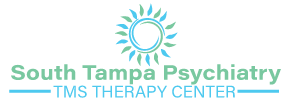The pressures of everyday life, unfortunately, can lead way too easily to struggles with anxiety, depression, and other mental health conditions. Sometimes the challenges go even deeper when struggling with substance abuse. You may have heard such a circumstance described as a “co-occurring” or “dual diagnosis” disorder. What are co-occurring disorders, exactly? And what does science say about the best way to treat them?
Co-occurring or dual diagnosis disorders involve the corresponding presence of substance use and mental health disorders at the same time. Frequently the two conditions feed on each other. They also require more detailed and extensive dual diagnosis treatment plans.
Fully understanding the answer to the question “what are co-occurring disorders” will help you evaluate treatment options for you or your loved one.
What Are Co-Occurring Disorders?
Co-occurring disorders, as we’ve said, are when someone is suffering from substance abuse and mental health challenges at the same time. The individual symptoms can present in either order, with an individual showing signs of either substance abuse first, or anxiety, depression, or related illness first.
Some of the signals are common to both conditions. According to the National Alliance on Mental Illness, symptoms of substance abuse include:
- Becoming distant from friends and family
- Exhibiting different or risky behaviors
- Presence of paraphernalia
- Showing withdrawal symptoms
- Dressing unusually, as if to hide needle marks
Signals of mental health disorders might include mood swings, problems with concentration, or exhibiting unexplained physical symptoms such as shortness of breath.
Each condition — mental health and substance abuse — requires a different treatment discipline. But medical professionals have increasingly come to recognize that integrated treatment of both mental health and substance abuse treatment produces the best outcomes for someone with a co-occurring disorder.
How Widespread Are Co-Occurring Disorders?
The ability to address co-occurring disorders has gotten better with an improved understanding of their unique challenges.
According to the National Survey on Drug Use and Health, more than 9 million people indicated they had experienced both a mental illness and substance abuse challenge in 2018. This number has been climbing since 2015.
Co-occurring disorders can come together in any type of pattern. But some of the more common pairings include:
- Marijuana substance abuse and schizophrenia
- Cocaine abuse and anxiety
- Opioid addiction and PTSD
- Heroin addiction and depression
- Substance abuse and ADHD
Getting the help you need requires the support of trained professionals who know the answer to the question, “what are co-occurring disorders?” They can help understand the patterns and put together an appropriate treatment plan.
Co-Occurring Disorder Treatment Options
Integrated treatment for co-occurring disorders near Palm Harbor, FL will start with a thorough assessment and evaluation. Clinicians need to understand your struggles well to develop an appropriate plan for getting you well.
The order of that plan will be different for every individual. But you can expect it to include steps such as detox, individual and group or family therapy, follow-up or “aftercare” planning (in case of relapse) and related measures.
Depending on your situation, medication-supported detox might be in order. Certain medications blunt the impact of illegal substances, limiting withdrawal symptoms and allowing you to work through other issues from a position of sobriety.
Getting Help
What are co-occurring disorders? We now know they present twice the challenges involved in treating addiction and mental health separately. Creating a plan for co-occurring disorders must be part of treatment for your unique situation. Our team of experts at South Tampa Psychiatry provides group and individual therapy, through our centers that include:
- Anxiety treatment center
- Bipolar treatment center
- PTSD treatment center
Contact us today at 866.273.5017 for an appointment or to discuss co-occurring disorders and treatment near Palm Harbor.







